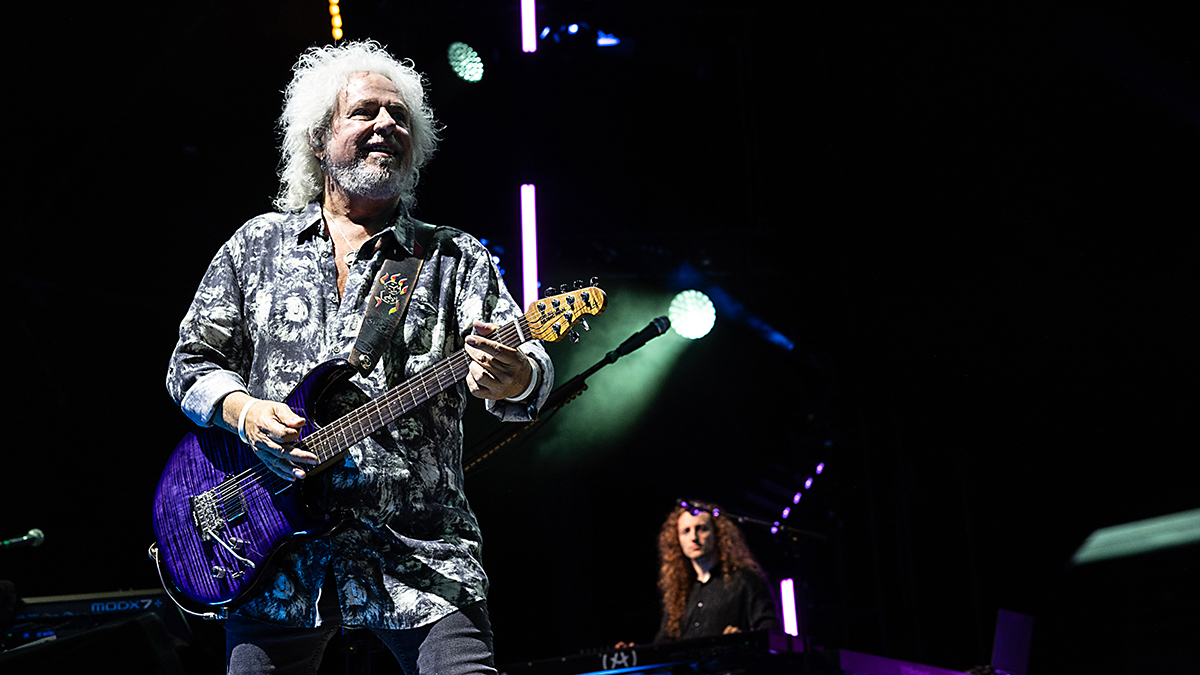The Kinks' Dave Davies Talks Reunion, His Kinks-Era Guitars, Meeting Jimi Hendrix and More
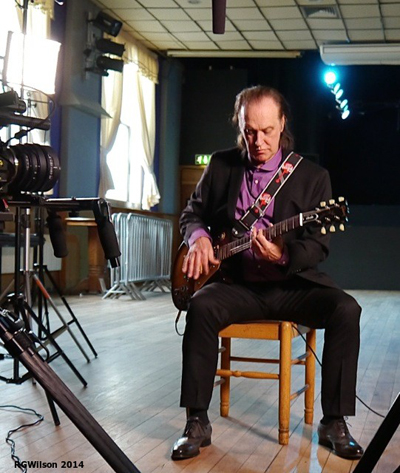
He’s a founding member of the Kinks whose new solo album is Rippin' Up Time. But what Guitar World readers really want to know is…
You played a lot of different guitars in the early days of the Kinks. How many of them do you still own? — Antony Shannon
None. Obviously, over the years I've had loads of guitars, but they’ve come and gone. I got to the point where I didn’t think it was nice to have guitars and not use them. All the guitars I’ve got I intend to use. I’ve got a couple of Teles with Lace Sensor pickups and maple necks. Maple necks feel softer to play, and I think you get a bit more sustain. I find the rosewood necks a bit tinnier. But I’m no expert by any means.
I actually went to Gibson a few months ago. They gave me a Goldtop and a Nighthawk, which is sort of a mixture of a Fender and a Gibson. It’s really loud and punchy and I love it.
But yes, I’d rather use one guitar that gets different tones than keeping picking up guitars. I know a guy who invited me around to his studio in L.A., and he had about 150 guitars, all perfectly in tune. He has the room specially air conditioned. I thought, That’s going a bit far! [laughs] I’m just happy if I have one good one.
What’s the story behind the Flying V you played with the Kinks? — Gary Owen
In 1965, I managed to get a hold of a black Gretsch with a Bigsby tailpiece. It was made for George Harrison, but for some reason he didn’t want it. So I thought, I’ll try it, I’ll take it on tour. We landed at LAX, and in those days you took only one bag and one guitar and that was it. We waited and waited for the luggage, and it never showed up!
All the latest guitar news, interviews, lessons, reviews, deals and more, direct to your inbox!
So a guy took us to this pawnshop. I looked at all the guitars, and in the corner I saw this funny-shaped box. I said, “What’s in that box?" I took it out, and it was this lovely Flying V. I think he said it was a ’56 or ’57. I paid $200. I thought it was great that I could put my arm through the middle of it.
I did the solo on “Till the End of the Day” [1965] on the Flying V. We came back from the States, where we had a disaster tour. Everything that could go wrong went wrong. It started off good, though; I met James Burton and Dean Martin. I had such admiration for James Burton, and his influence came out in that solo, some of the bendy things.
Who were your main six-string influences? — Martha Maciel
Eddie Cochran was my first real inspiration. My brother-in-law was a jazz player who built guitars and pickups. He had Tal Farlow and Django Reinhardt records, and I liked those. But Eddie Cochran had it all. He was a good player, he looked really cool, he was funny. He was the whole package. Then there was Big Bill Broonzy. I tried to learn all those “guitar shuffle” licks, which added to my learning about rock and roll.
But I liked everything. I loved Lester Flatt and all that country picking. I used to buy records not because of the singing but because of the guitar playing. I had all of Rick Nelson’s records. He had a cool voice and he looked cool, but it was always the arrangements, where the guitar sat in the song. You know, how did they put these songs together?
I was also a big fan of the Ventures. Their rhythm player, Don Wilson, played these barre chords. I realized that’s a great way to play because you don’t have to worry about minors and sixths and all that. I also picked up a lot from Charlie Gracie and Chuck Berry.
It’s odd to think that the guy who played the solo on “All Day and All Night” [1964] also played the solo on “Catch Me Now I’m Falling” [1979], because the styles are so different and miles apart. Were you always trying to learn and evolve? — Damien Linotte
Yes. I’m not a trained musician, so when I was starting out I figured out a way of playing solos. We didn’t know if were gonna last six months or 60 years, so we went into the studio and did everything very quickly. Ray and I grew up in a musical house. My dad played banjo, and we had all these different musical influences. I was really into picking up “feel” riffs, and I was influenced by everything and learning all the time.
Sometimes you learn just by meeting people. I learned just as much from meeting James Burton as I did from listening to him play. It’s a bit like being a psychic; it’s an organic thing. Growing up with all those influences—everyone from Bernie Kessel to Burt Weedon—it all goes in there, even if you can’t play it the same way.
What are the odds of a Kinks reunion in the near future? — Joe Joffre
I’ve been talking to Ray recently. I’m recording and he’s recording. But I think we’re gonna try and do something. But we can’t do a big tour. Hopefully, it’s not over till it’s over, right?
What can you tell me about your new album, Rippin' Up Time? — Walt Ames
I finished it a few weeks ago, and I really like it. Some of the tracks are about my early days and growing up. A lot of them are about where I am today. And there's a few about the future, because you've got to embrace the future. I had an image of all the times overlapping as if they're all in one place in my mind.
I thought I'd just write it from the point of view of a dream. Also, I recorded it pretty quickly. We were writing songs while we were doing vocals, like, “Shit, I need a line here!” [laughs] That’s what it was like in the old days. My son Russ actually sings on the album. In general, it was great fun making it and working with my old friend, David Nolte, who co-produced it.
Did you ever meet Jimi Hendrix? — Gloria Mayer
Yes. He didn’t say a lot, but he paid me a great compliment. He said he always felt the Kinks’ “You Really Got Me” [1964] was a landmark recording. He was a total “feel” player, very organic and natural. But he didn’t talk much! [laughs]
Did the stroke you suffered in 2004 have any lasting effects on your guitar playing? — Randy Kitchener
In some ways it is different, but in other ways it’s better. I don’t get that panic that I’ve always had.
If I were to start a Kinks tribute band, what guitar—and what effects—would I absolutely need to own? — Harvey Klinger
That’s a good one! I’m not great at effects, but you’d probably need a flanger because, if used correctly, it can make your tone fatter and more surreal. For the guitar, maybe a nice Goldtop. Of course, cheap guitars can be really useful. People think they have to get a Gibson or a Fender, but everybody else has got those. Do you want to sound exactly like everybody else? Looking back, I liked my old Guild Starfire. You could get lots of feedback and sustain.
What Kinks song features the guitar work you’re most proud of? — Brian Cancemi
Oh dear, that's hard. I like “Low Budget” [1979]. It’s wild. I like that kind of, almost country-style playing. It’s like a shape; I don’t even worry about what notes I play as I’m doing it. And if you catch a few open strings, you might get lucky with a weird clunk or a harmonic or something. I think all the best stuff is the stuff that happens before you’ve even realized what you’ve done. So “Low Budget” and, obviously, “You Really Got Me.”
Everyone knows you sliced your amp’s speaker cone when recording “You Really Got Me,” but exactly why did you do it? What brought you to that point? — Juan Luna
I don’t know. I was always into science fiction and science, always tooling around with wires. I loved the mechanics of amps and things. Anyway, one night I just got really frustrated with my amp sound. Every amp sounded the same. I got really, really fed up. I didn’t think I’d actually done anything; I’d just “shaved” it. So I plugged into my AC30, and it really came to life. It was the first “effect pedal.” [laughs]
Is it true you weren’t crazy about Van Halen’s 1978 cover of “You Really Got Me”? — Ashley Jones
It’s an accomplished piece of work, but I thought it kind of lost some of the tension and struggle. It’s a bit too accomplished. It takes away from where it came from. It's like a piece of art: if you're copying the original, what does it end up becoming? I don’t like copying. It's hard enough to develop a style of playing. As a musician, you should always try to do something different. But I can’t fault them! And you know those guys have the “brother” thing like us, which is probably why they could relate to our music.
The Kinks Are the Village Green Preservation Society [1968], one of my favorite albums of all time, seems to have a serious cult following. What do you think makes it stand out? — Jake Stuiver
We’d come off a terrible, disastrous tour of America. We even got banned. We couldn’t go anywhere. Everyone else was playing Woodstock. What did we do? [laughs] So I think we drew very heavily off our family, you know. If you look through the Kinks catalog, a lot of it is drawn from family and characters associated with family. So whenever you get your back against the wall, you have your family there for support. I think that’s kind of what happened. It made Ray write in a different way. He started looking at these characters he met while we were growing up.
There are a few tracks like that on my new album, Rippin' Up Time—songs about people I knew when I was 14. But [Village Green] is a very interesting record. It's like everything else we did back then. We'd come up with something—a guitar sound or an unusual concept or idea—that didn't quite fit into what was going on, and four or five years later, people would get it. We’re always slightly out of time, either ahead of it or behind it.
What’s your favorite Kinks album? — Erik Neilis
I have a soft spot for Arthur (Or the Decline and Fall of the British Empire) [1969] and Sleepwalker [1977]. I felt very confident on Sleepwalker. And I really believed Arthur would start a whole new genre of music. Maybe not music so much, but a whole new idea. It was like doing a show at a theater, but with music.
It also was the first time the label allowed us more time to do what we wanted to do. Before that, even Village Green was pretty quick. So I felt more relaxed, and Ray wrote some of his most beautiful songs on that album, like “Young and Innocent Days” and even “Australia.”
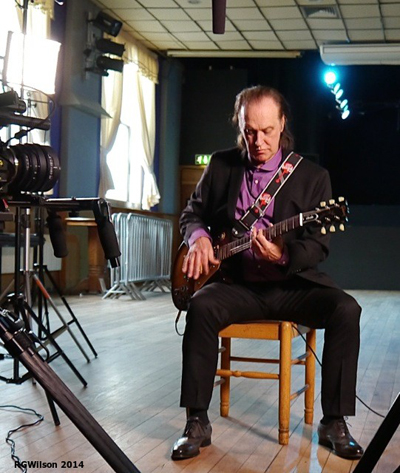
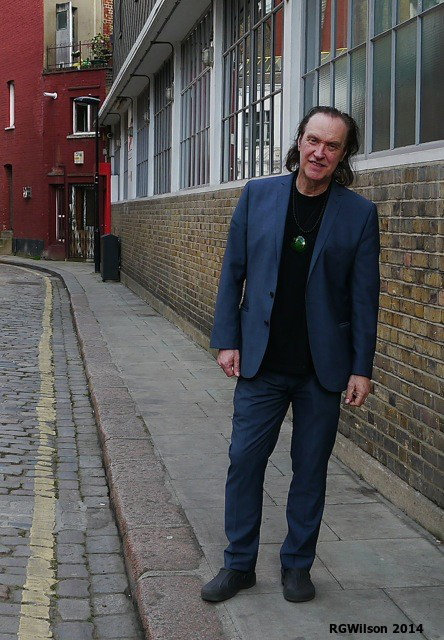
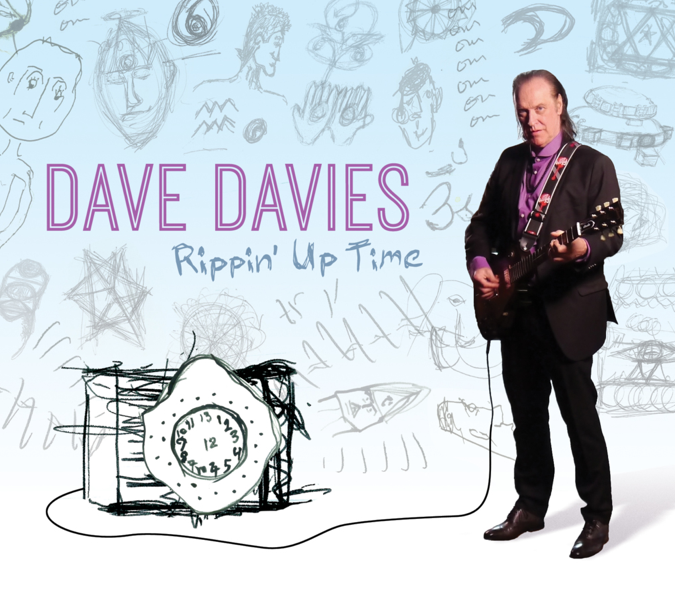
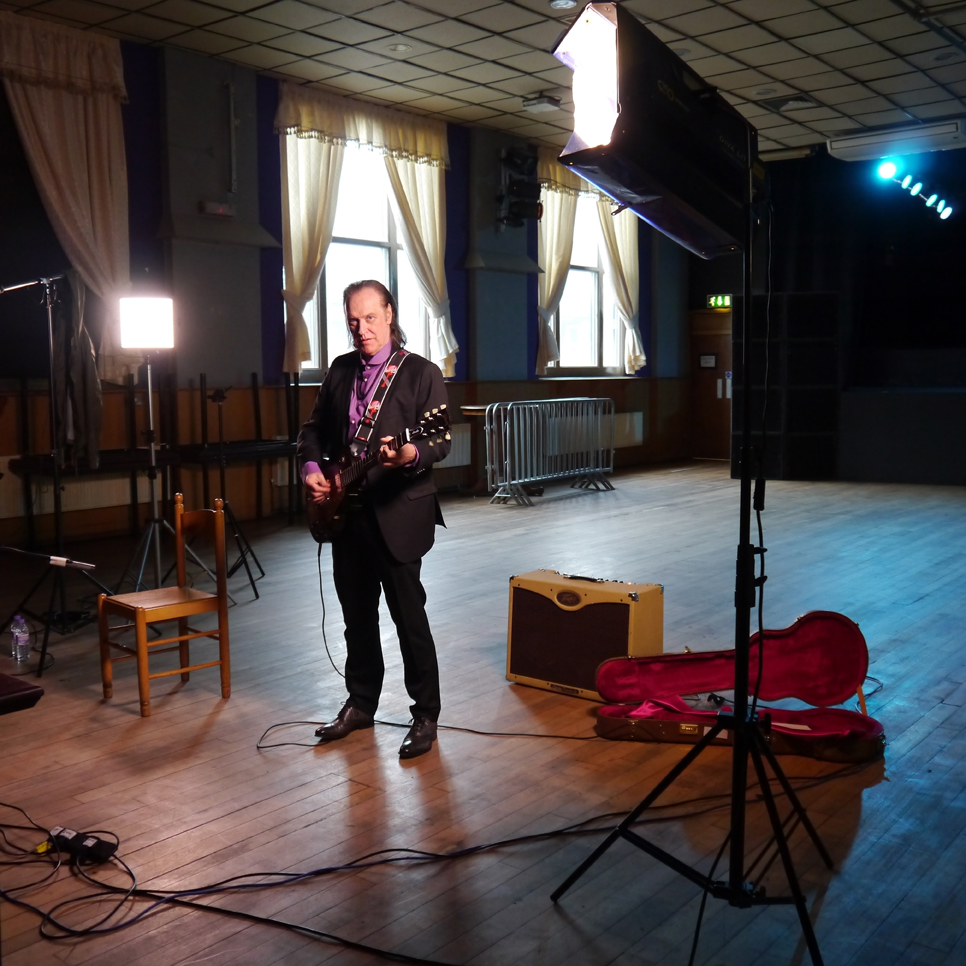

Damian is Editor-in-Chief of Guitar World magazine. In past lives, he was GW’s managing editor and online managing editor. He's written liner notes for major-label releases, including Stevie Ray Vaughan's 'The Complete Epic Recordings Collection' (Sony Legacy) and has interviewed everyone from Yngwie Malmsteen to Kevin Bacon (with a few memorable Eric Clapton chats thrown into the mix). Damian, a former member of Brooklyn's The Gas House Gorillas, was the sole guitarist in Mister Neutron, a trio that toured the U.S. and released three albums. He now plays in two NYC-area bands.
